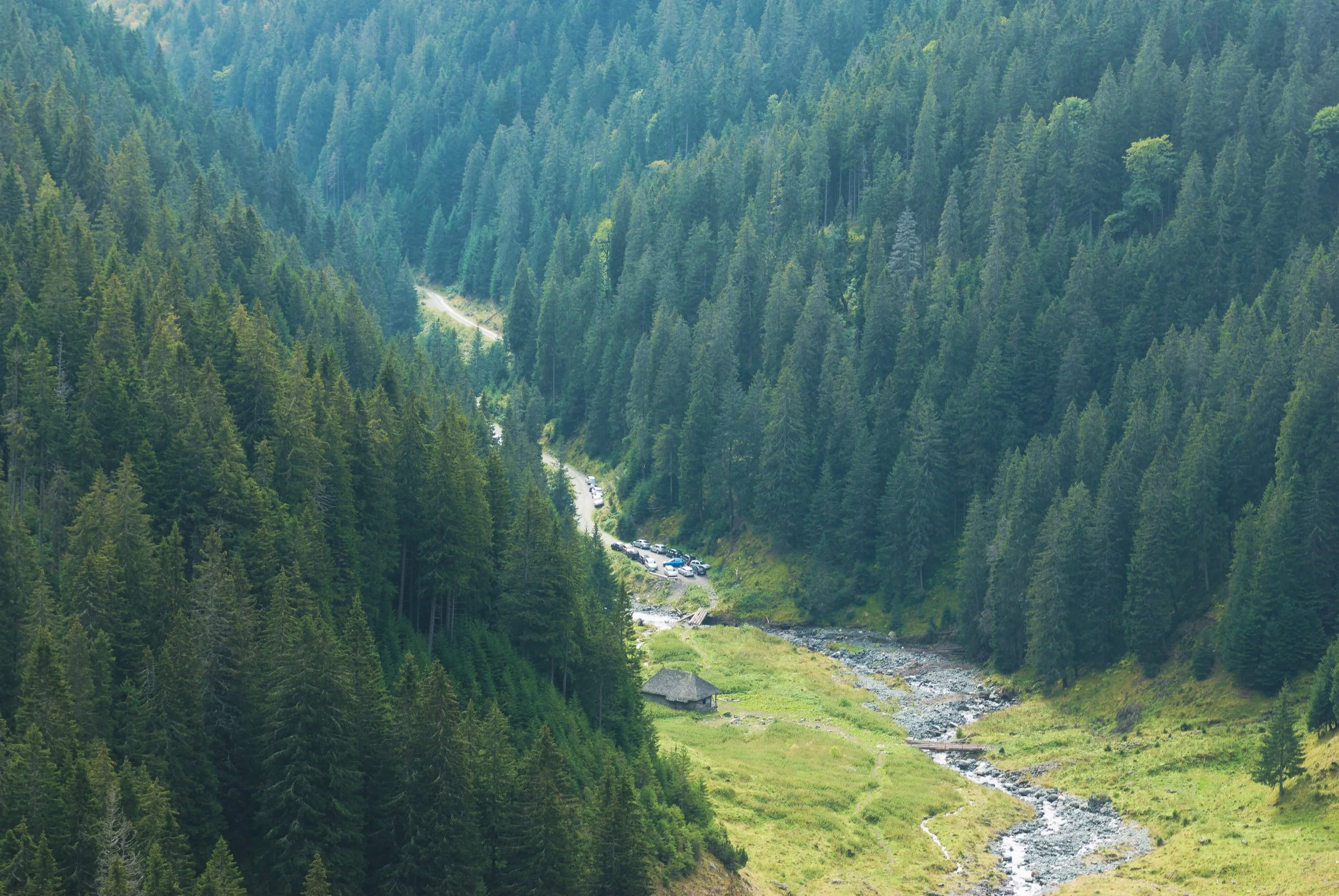With the loss of centuries-old trees, Romania looks to the preservation of its ecosystem to protect both past and future.
Făgăraș Mountains in Romania. Andrei Stroe. CC-BY-SA-4.0
In Nucsoara, a commune in Romania, an initiative titled the “Forest of Immortal Stories” was created to protect the area's centuries-old beech trees and draw ecotourism to the area. The organizers selected 2,544 trees to symbolize the height in meters of Moldoveanu, the Romanian Carpathians' highest peak, which is a day's hike from Nucsoara.
The forests nestled within the Carpathian mountains of Romania are home to ancient beech trees that provide a window into the country’s past. Previously untouched by logging, these forests had been a sanctuary for wildlife but are now faced with this commercial threat, potentially destroying both the balance and history of the ecosystem.
In 2005, the Romanian government set aside areas of old-growth forests to designate as protected areas. About half of the country’s untouched beech forests were included in this, but those areas outside of the protected zone began to be depleted by logging companies at an unprecedented rate. The most valuable of these trees are the largest and, unfortunately, are also often seed bearers necessary for the survival of the species. The concern over ecosystem sustainability is further exacerbated by the loss of a shaded forest canopy. Without old trees to reduce the amount of sunlight that is able to reach the forest floor, the soil dries out and disrupts the environment’s moisture balance, reducing the likelihood of revitalization.
Ancient forests of beech trees are intricate ecosystems that took millions of years to evolve; once lost, they can never be replaced. These virgin forests are marked by their biodiversity and delicate balance. One Dr. Andrei, a conservation biologist, was asked if selectively extracting old trees was compatible with conservation, a premise she rejected. “Sustainable logging is a myth in virgin forests. The mature habitat is drastically altered when dominant seed trees are removed,” she explained. In order to protect Romania’s remaining ecological heritage, preserving the ecosystems as they naturally exist is the best long-term solution.
The Forest of Immortal Stories project has been a leading initiative in protecting some of Romania’s oldest natural environments. The group works with the Nucsoara commune in accepting and managing donations to help with its conservation project. Donations are made by adopting a beech tree for 700 lei ($152 USD), and purchasers can write a 200-word story to be tagged onto their tree with a QR code. Because of the considerable longevity of beech trees, their stories span hundreds of years, giving generations of people the opportunity to tell their own.
Donations collected for the project are used for protecting the trees and their natural area for future generations. Additionally, they support the maintenance of the trees through activities such as cleaning the area to ensure safe visiting conditions and sustainability. Beyond its basic goal to protect the beech trees, the initiative also works to raise awareness of and promote ecotourism. Ecotourism presents an opportunity to boost conservation efforts in Romania while still supporting local livelihoods. By bringing in tourists who are eager to see the natural wilderness, the funds contribute to protecting these habitats. Unchecked tourism can damage the environment and infringe on the habitats of wildlife, however, this more mindful approach to tourism mitigates its negative impact and respects vulnerability of the landscape while feeding tourists’ curiosity.
To get local communities on board with greater protection efforts for beech trees, conservationists advanced the possibility of more sustainable livelihoods. In these forests, the harvesting of timber generates jobs and income. To solve this dilemma some entrepreneurs, such as Cristian Balan, have become practitioners of “zero impact forestry,” that, rather than harvesting mature trees, harvests other non-timber products. Through his eco-business collecting berries, mushrooms and other forest resources, Cristian employs two dozen people who gain steady incomes while keeping their ecosystem intact.
Nucsoara's high concentration of century-old beech trees is unique not just on a national or continental level, but likely a global one as well. Through the promotion of ecotourism, there can be a better balance established between conservation and livelihood, one which will aid communities economically while incentivizing preservation. Ensuring the conservation of these trees allows visitors and locals an opportunity to look into the past, but with the continuation of logging squandering Romania's environment for fleeting profits, much of the country will be robbed of a future.
TO GET INVOLVED
There are several practical avenues for involvement in the preservation of Romania’s forests. The Forest of Immortal Stories project provides people with the opportunity to adopt a beech tree on their website that allows buyers to protect a tree while investing in the development of conservative tourist facilities. Beyond this project alone, other broader initiatives have taken root in Romania to help save forests themselves. EuroNatur, a nature conservation group, has campaigned vigorously to protect the country’s remaining forests. In the groups articleabout this work, they list opportunities for donation and active contribution that are avenues for safeguarding Romania’s nature. Other groups such as the European Nature Trust offer people the opportunity to protect Romania’s wilderness with a trip to Transylvania. Partnered with Steppes Travel, the two groups emphasize conservation journeys that enable travelers to experience Romania’s wilderness and conserve its natural wealth, teaching explorers to travel consciously and with purpose.
Mira White
Mira is a student at Brown University studying international and public affairs. Passionate about travel and language learning, she is eager to visit each continent to better understand the world and the people across it. In her free time she perfects her French, hoping to someday live in France working as a freelance journalist or in international affairs.


